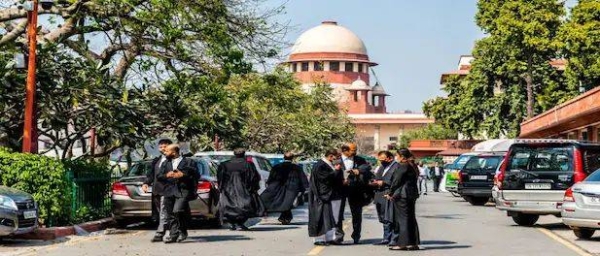
A landmark judgment that could bring part of UK law into line with sharia law’s position on “bride price” payments is to be announced this week in the central London county court, in a case backed by a women’s charity.
A bride price – or mahr – is one of the important aspects of an Islamic marriage contract. It is a gift, or a promise of a gift, to the wife by the husband. It is agreed between the parents or guardians of the bride and the groom verbally or in writing shortly before the couple’s marriage.
Under sharia law, the wife has the right to ask for her full mahr at any time during her marriage or upon its dissolution. South Asian women married under UK civil law, however, are currently unable to demand its payment in full on divorce. They must instead apply to the family court, which typically demands only the partial payment of the money as part of the overall financial settlement under section 25 of the Matrimonial Causes Act 1973.
Until now, the UK courts have dealt only with cases involving written mahr contracts. The case in question is the first involving an alleged oral contract to be heard in the UK courts.
Nazma Quraysha Brishty has taken her ex-husband, former mother-in-law and former father-in-law, Maksudul, Shahinur and Izaharul Halder, to the county court to demand the full payment of her mahr, which she says is worth approximately £55,000.
The couple had a mutually agreed, arranged marriage in England in January 2017. They separated later that year and were divorced in 2018. Brishty’s former in-laws paid her £5,005 – the mahr written in their Islamic certificate of marriage – but have refused to pay the remaining sum that Brishty says her former father-in-law promised verbally, in the presence of her father and another witness, before and at the wedding ceremony. Her ex-husband and his family deny there was an oral contract.
“If this case is won in favour of Nazma, this decision will be an overwhelming triumph not only for her but also for other women in her circumstances,” said Thamina Kabir, the principal solicitor at Thamina Solicitors, who is representing Brishty.
“There is no established case law or parliamentary law dealing with women in this position. The decision itself would be the best and most thorough examination of a problem that has vexed legal practitioners for decades.”
“This decision, if made in the favour of Nazma, would be a landmark decision of this decade and would positively influence the justice system by forcing the legal practitioners to think in a different way to ensure the claimants’ entitlement that they deserve. Certainly we will see more and more cases at the doorsteps of civil and family practitioners.”
If the court finds in Brishty’s favour, the case will establish a precedent that cases involving mahr can be heard at UK county courts for breach of contract and at the family court as part of financial settlement. This would enable women to demand the payment of their mahr in full as is required by sharia law.
The ruling would be applicable not only to Muslim women but to women from all cultural backgrounds where the tradition of giving mahr is practised, regardless of their immigration status in the UK and whether the contract was in oral or written form.
Pragna Patel, the founder and director of SBS, which has been observing the case, said she does not support any element of sharia law being introduced into UK law. She
said: “We urge the courts and policymakers to do more to address what is a major gap in protection and justice for many black and ethnic minority women when they seek financial settlements in courts following the breakup of their marriage, over issues such as dowry and bride price, using principles of family, contract and civil law.”
Parminder Saini, a barrister from No5 Chambers who has advised Brishty’s legal team, said: “This case is timely and relevant as it represents the growing confidence of women from the Asian subcontinent to assert their rights and challenge injustice, which would be seen as a cultural faux pas but which has prevented women from seeking protection of their interests.
“It will be interesting to see how the court rules. In any event, I expect to see more such cases being brought forward.”
This article was amended on 16 August 2021 to better reflect Pragna Patel’s views on sharia law.












